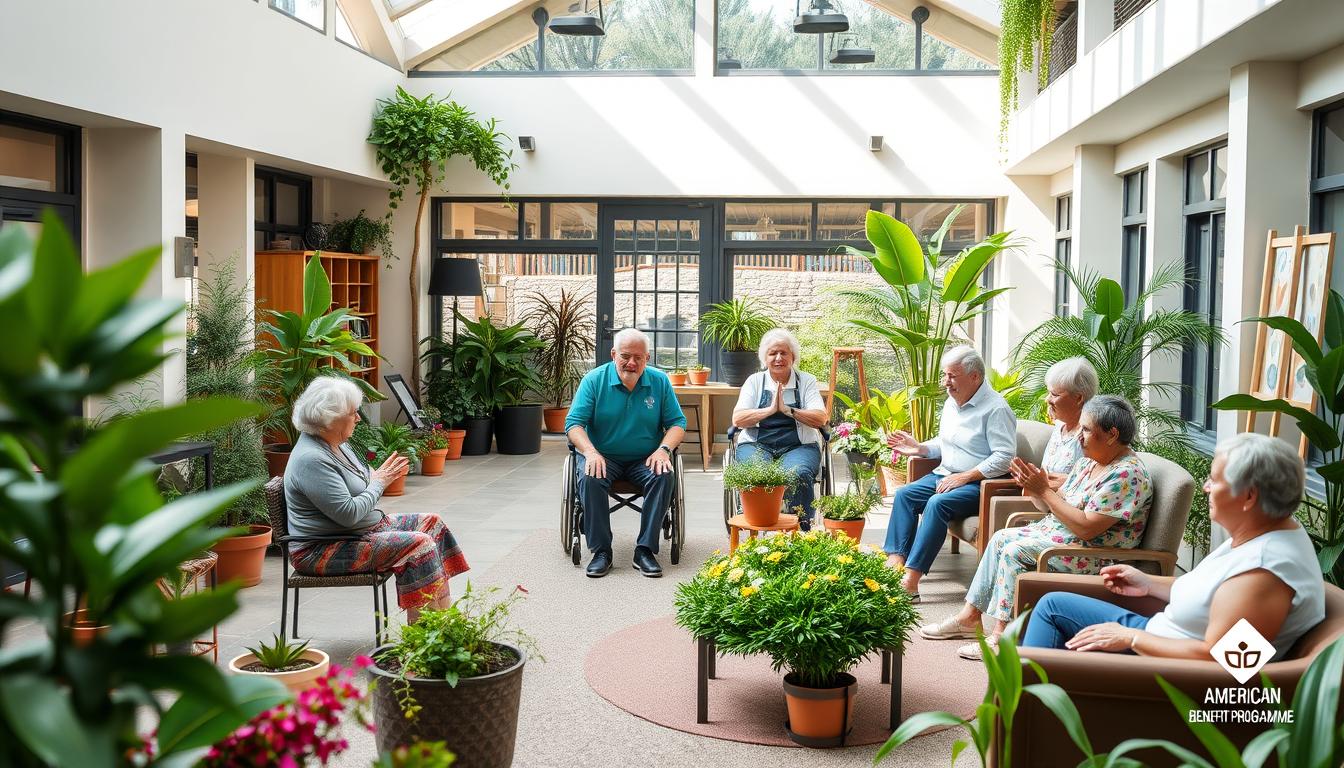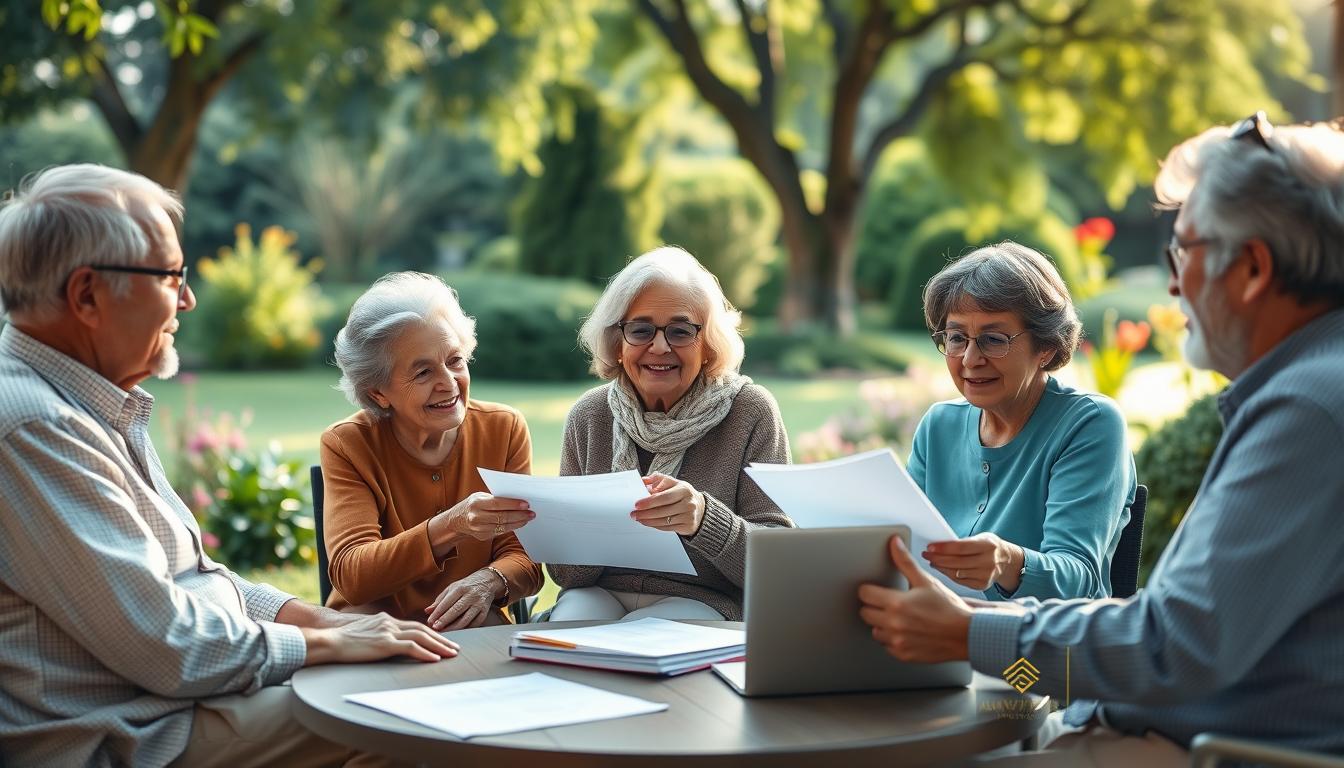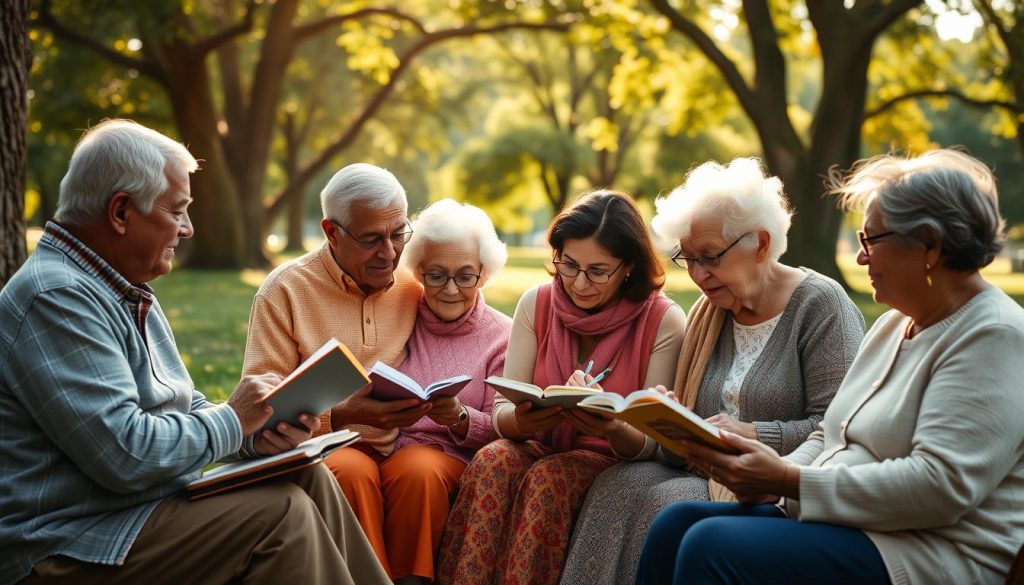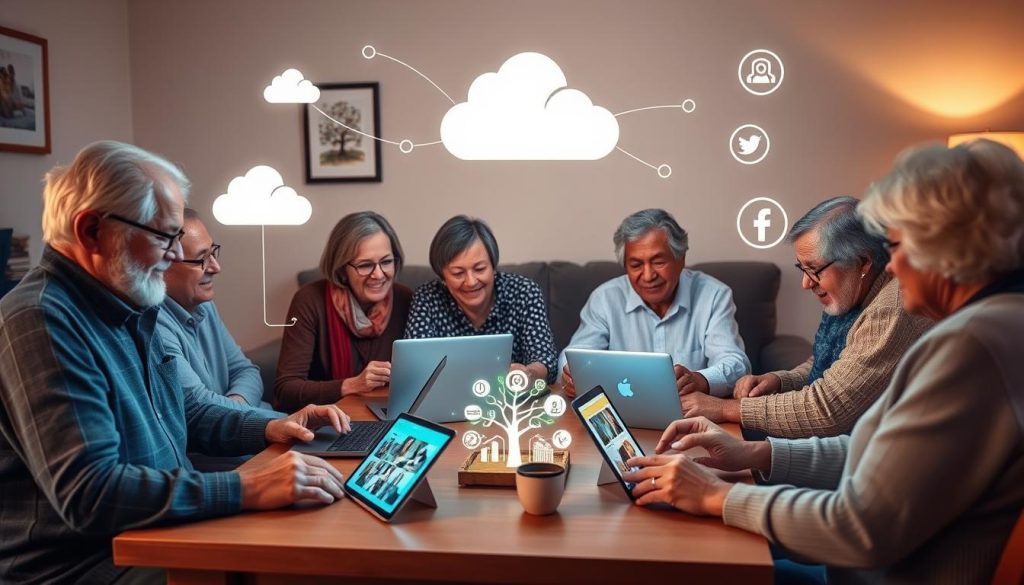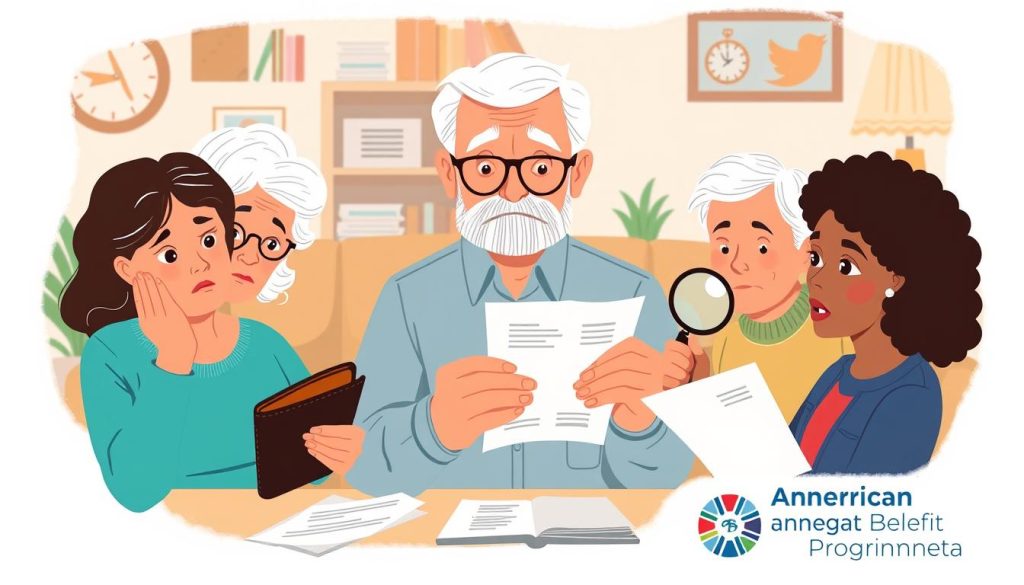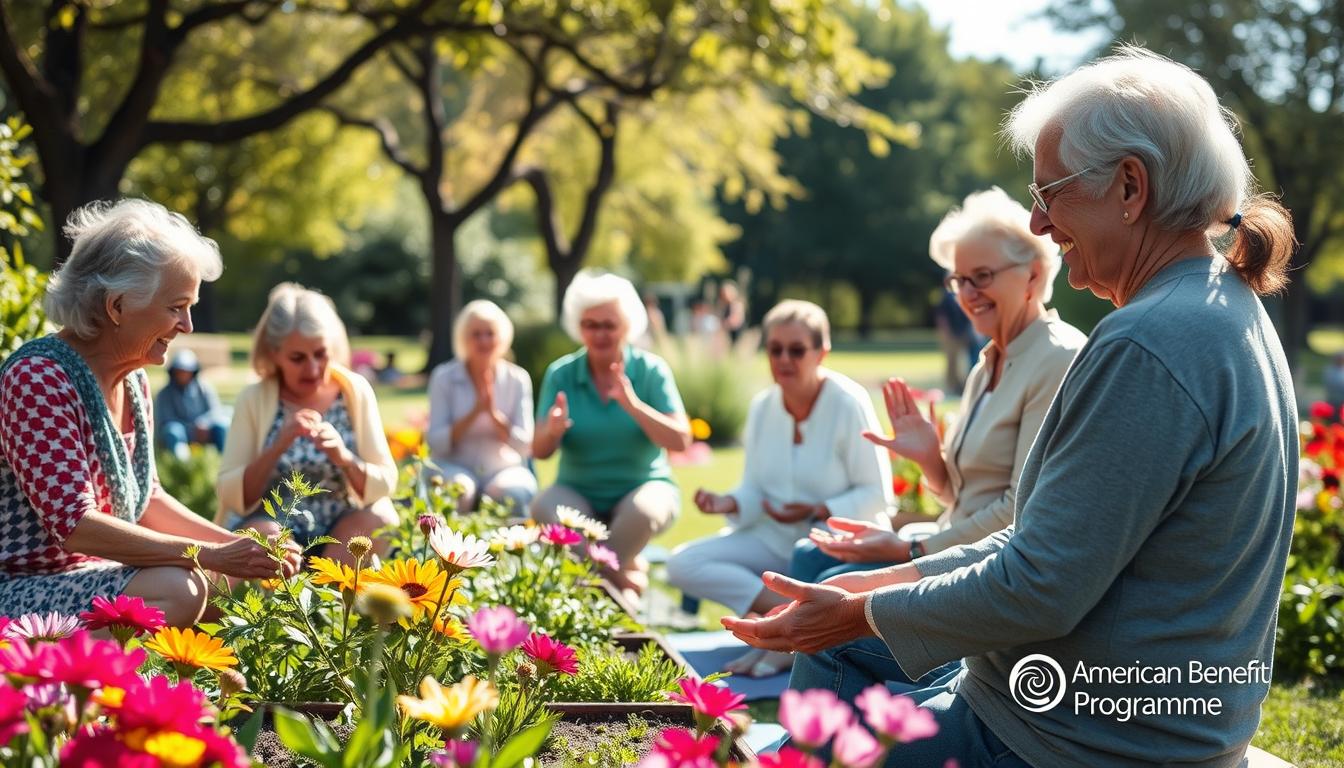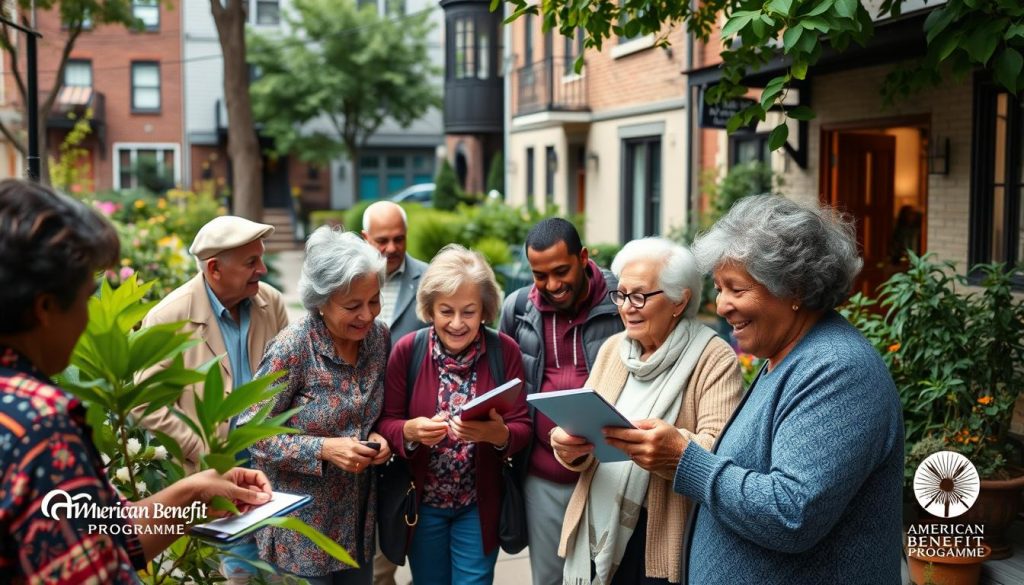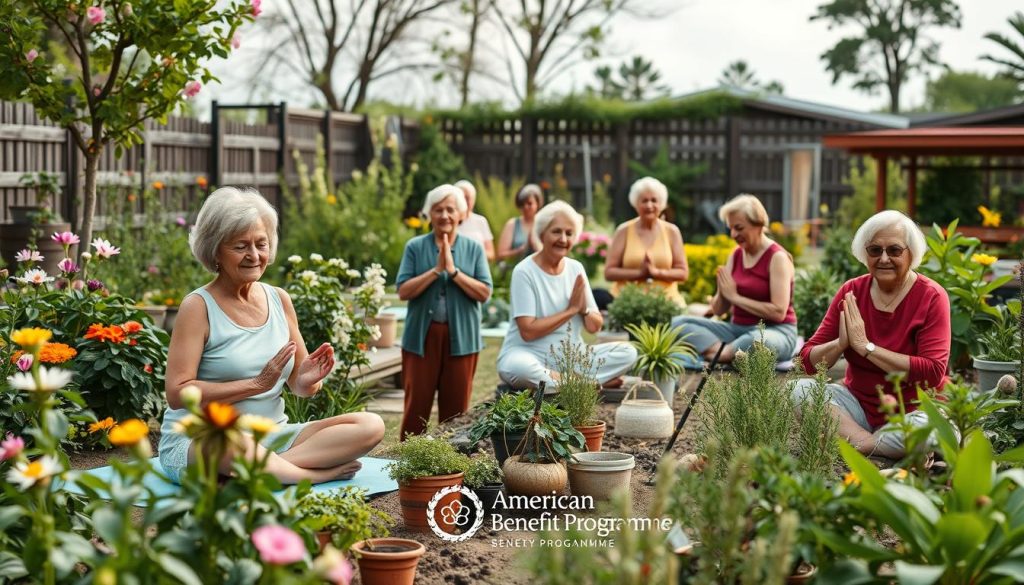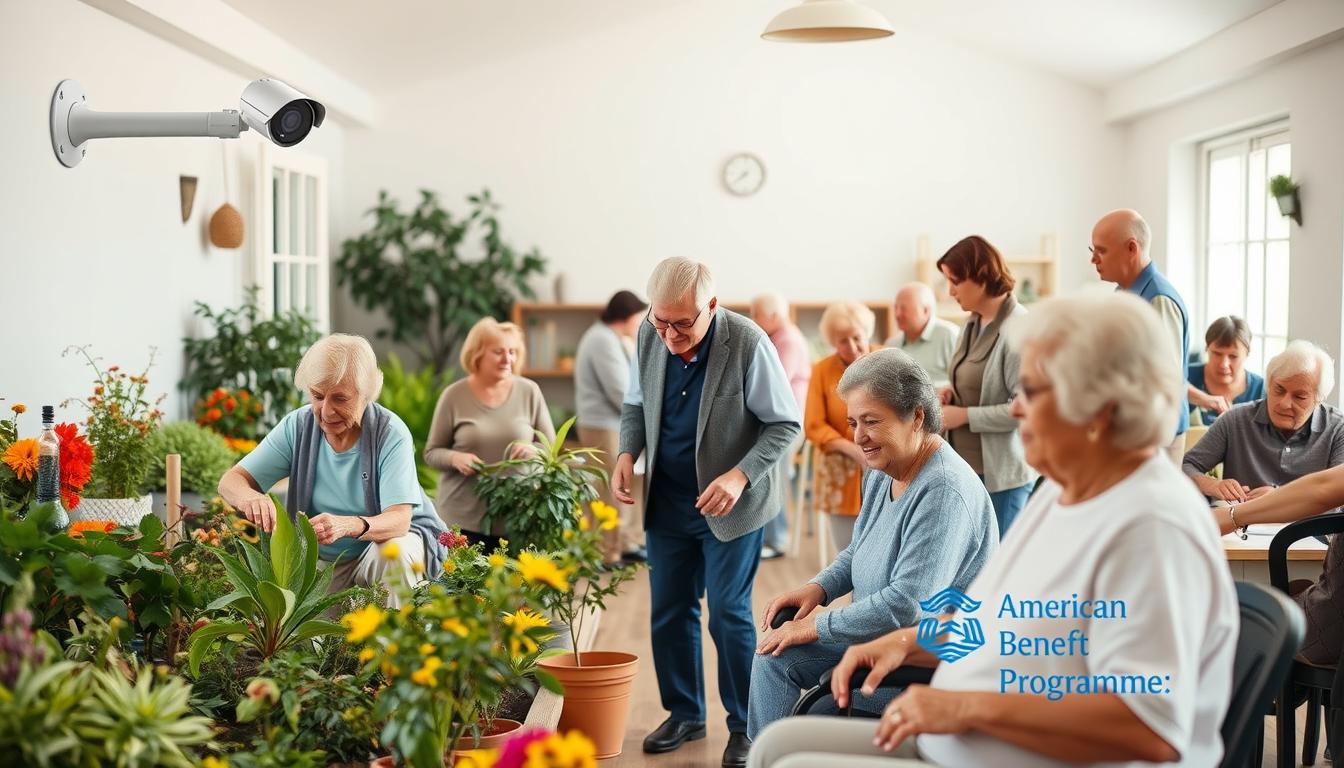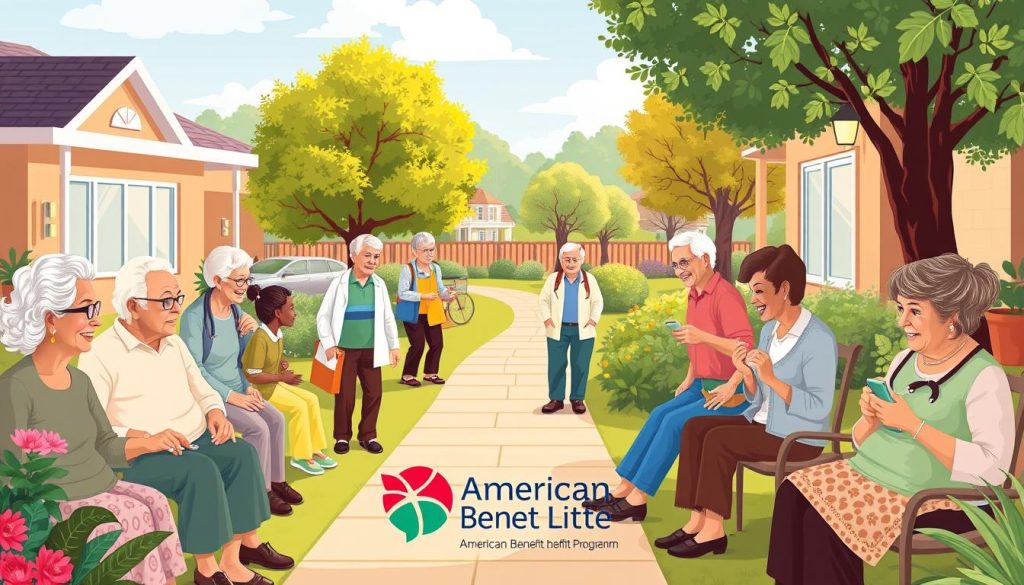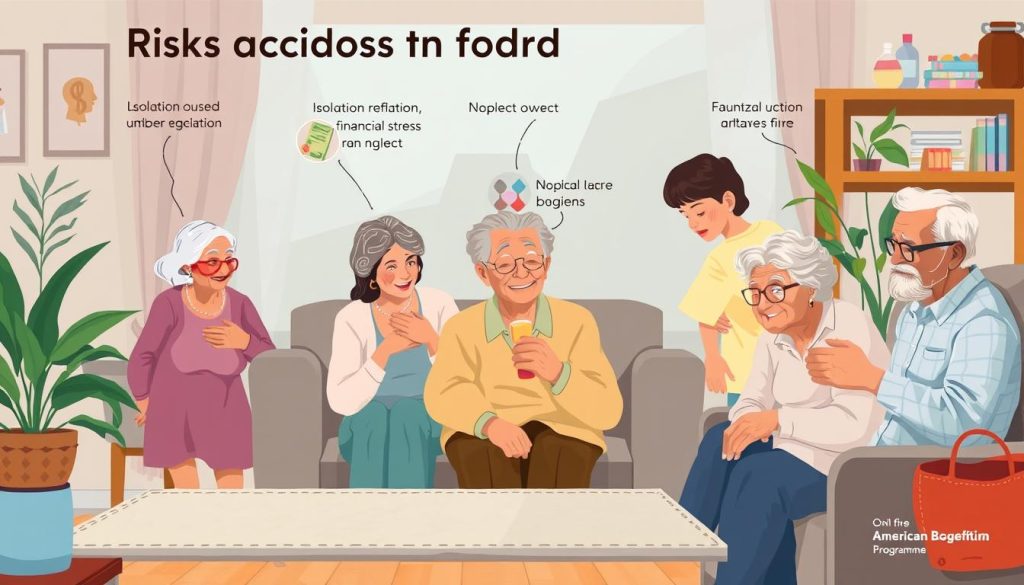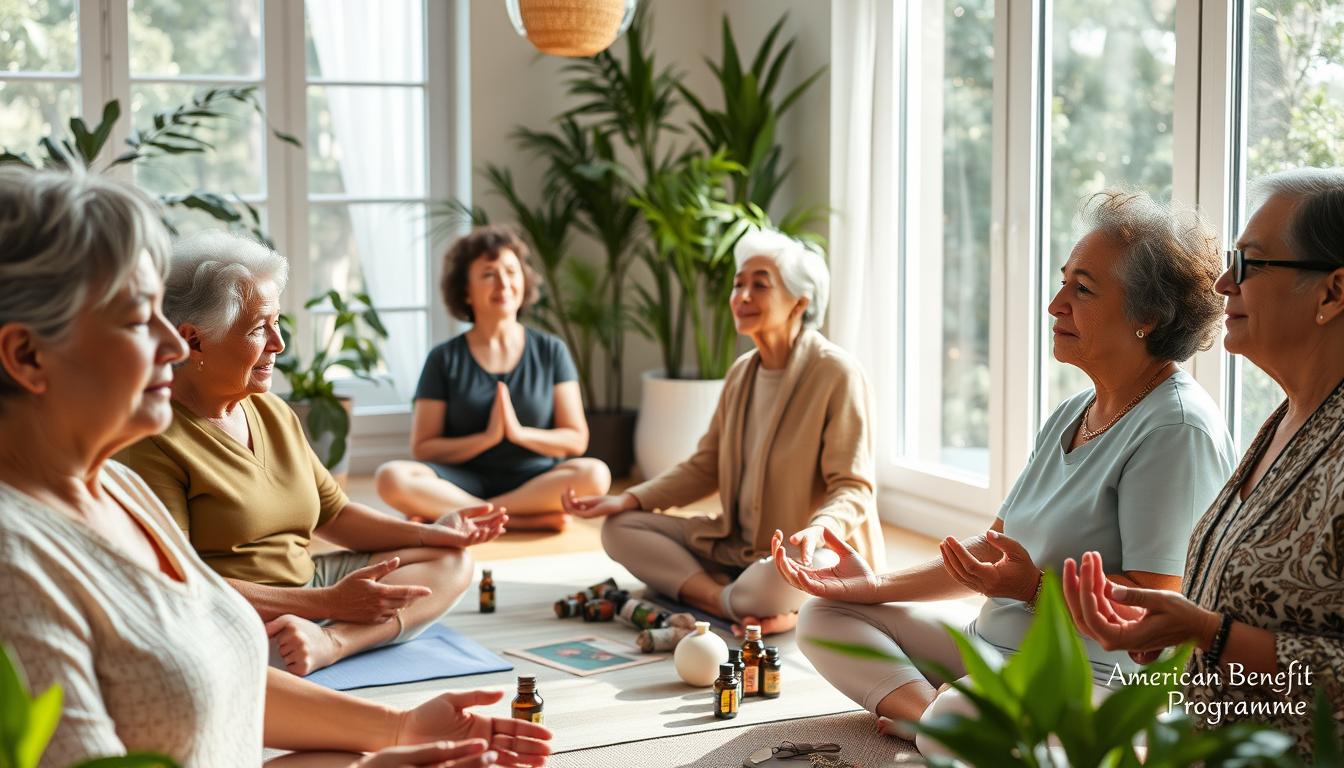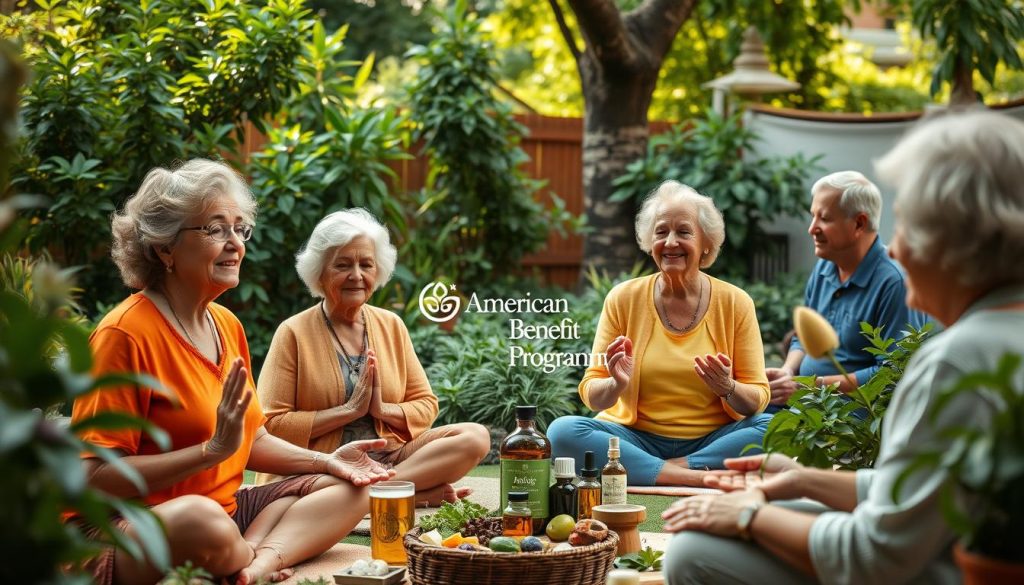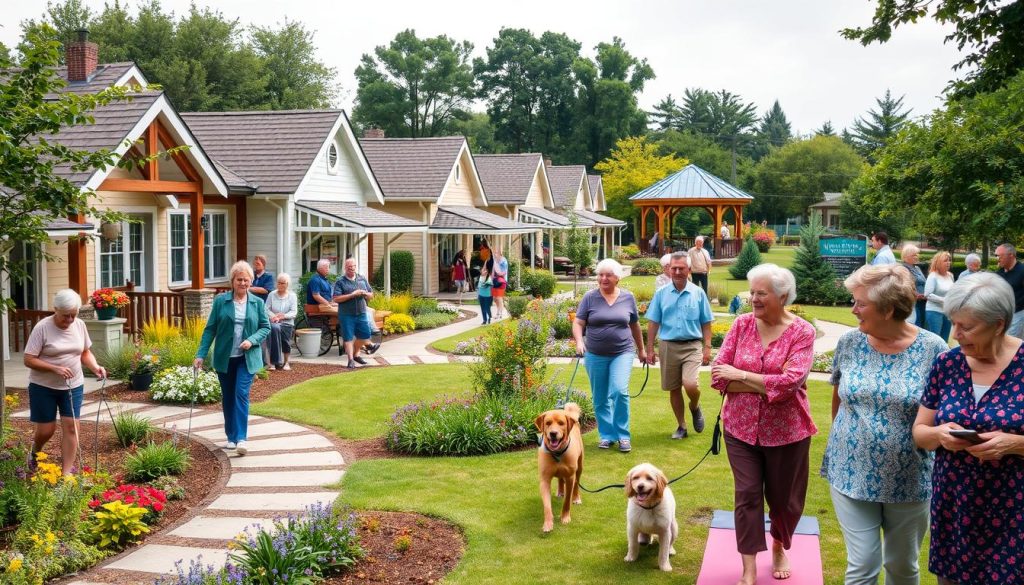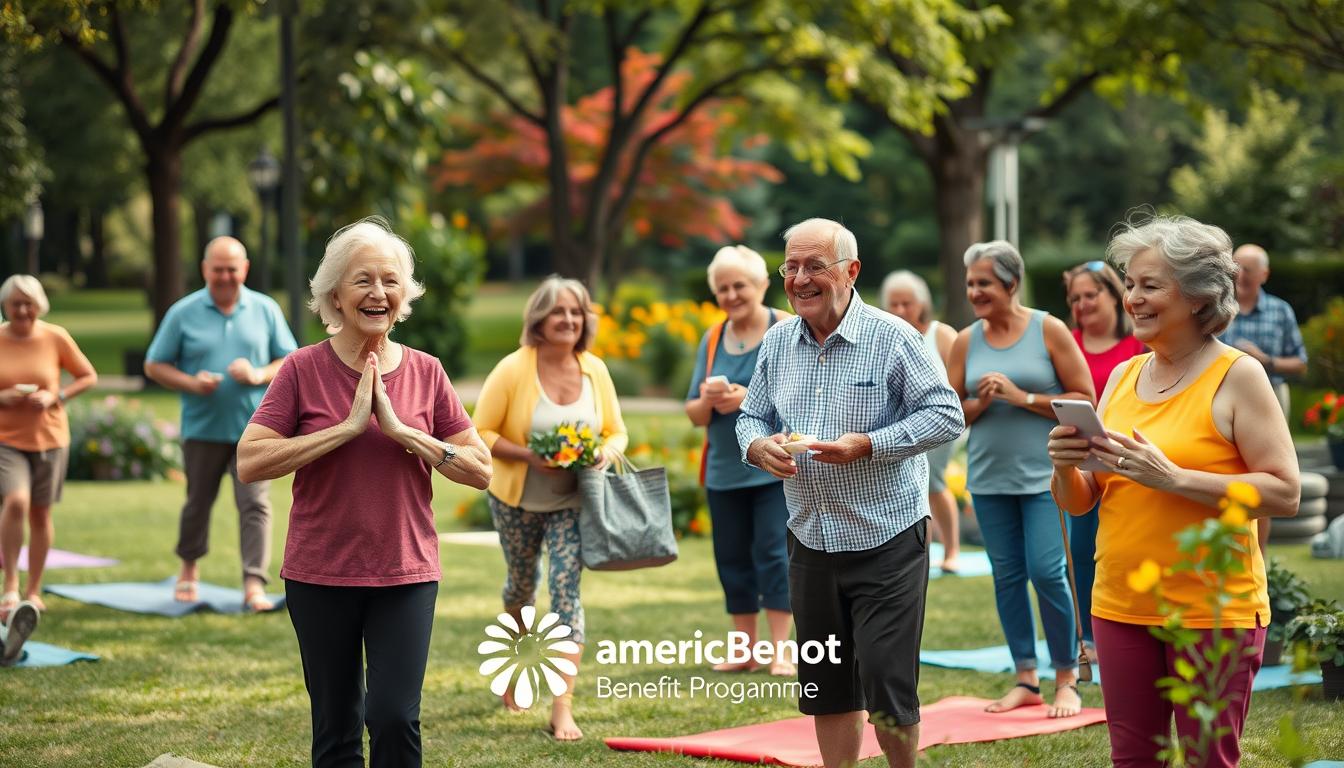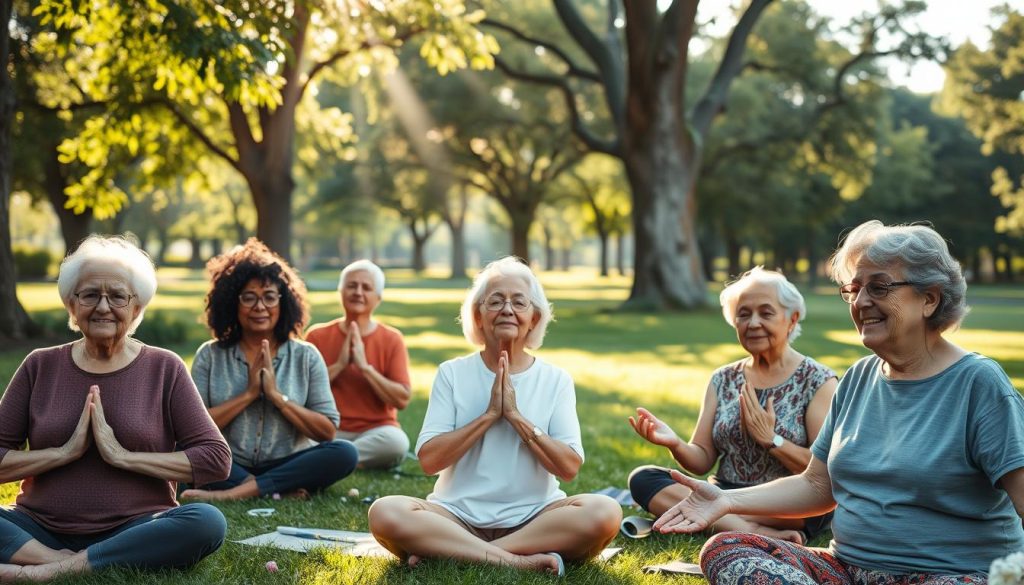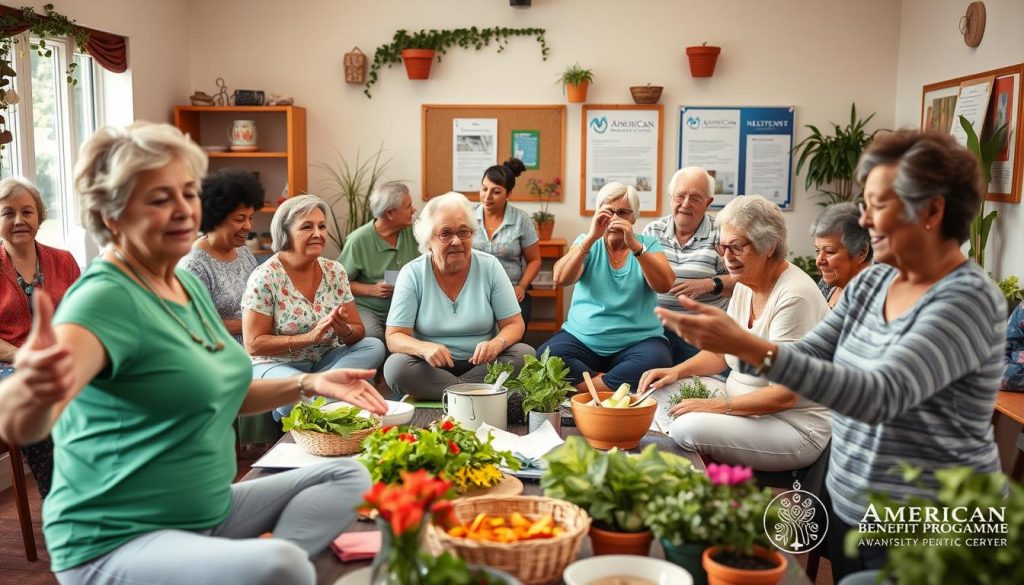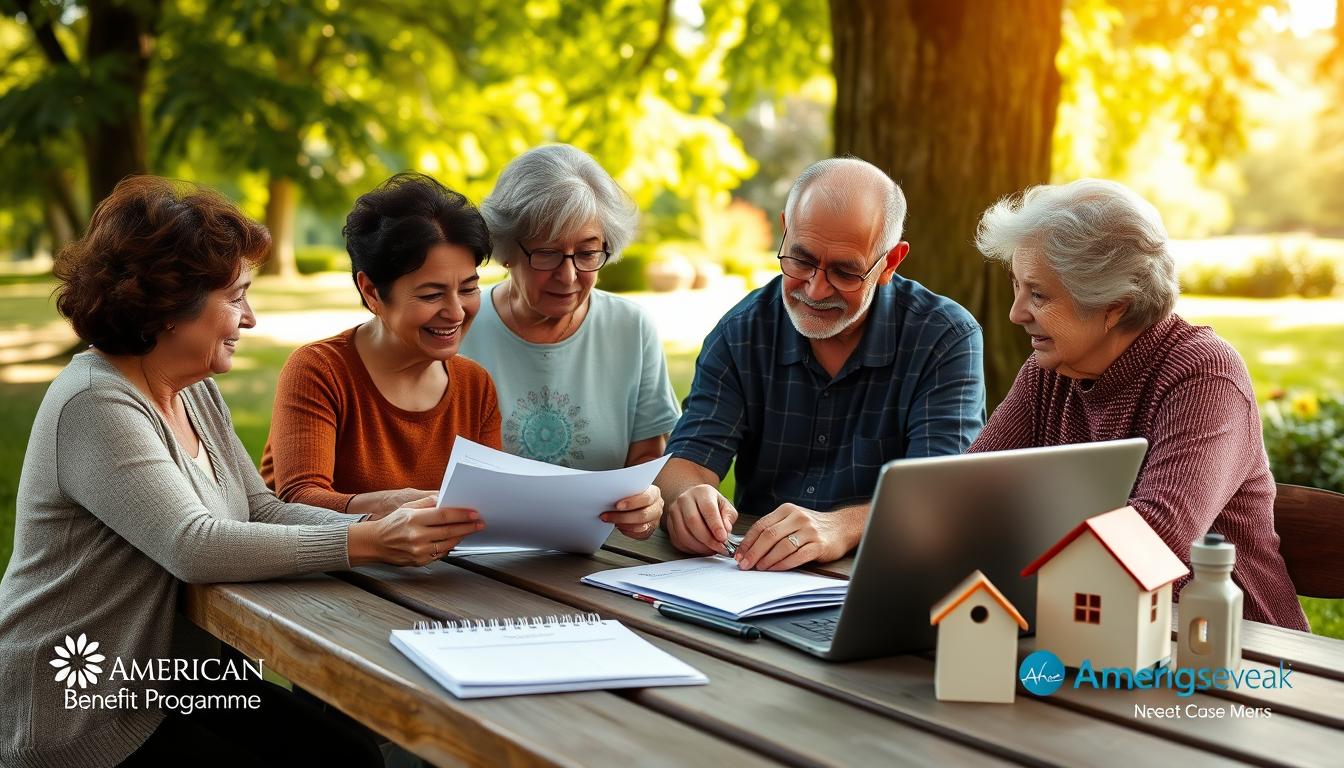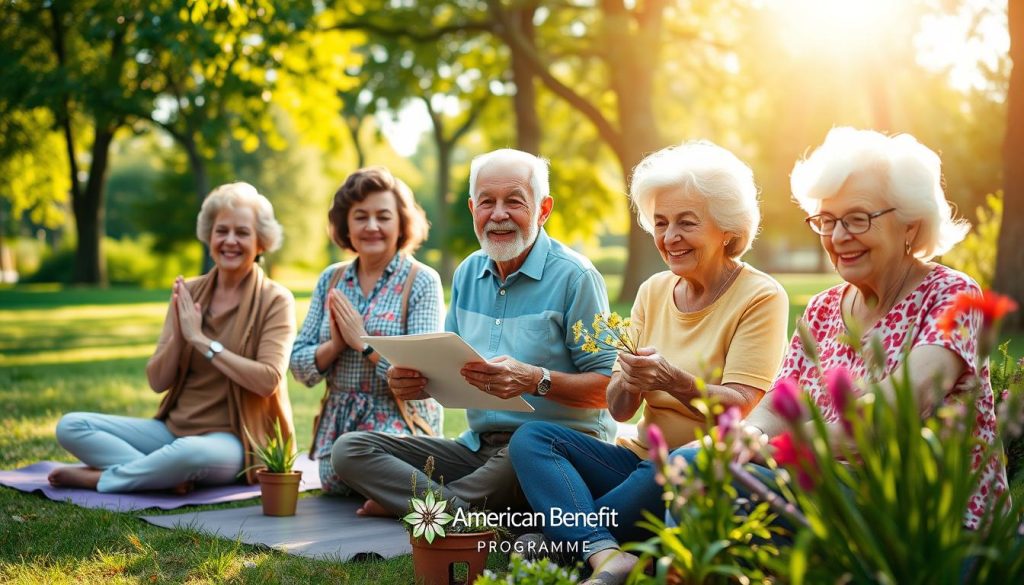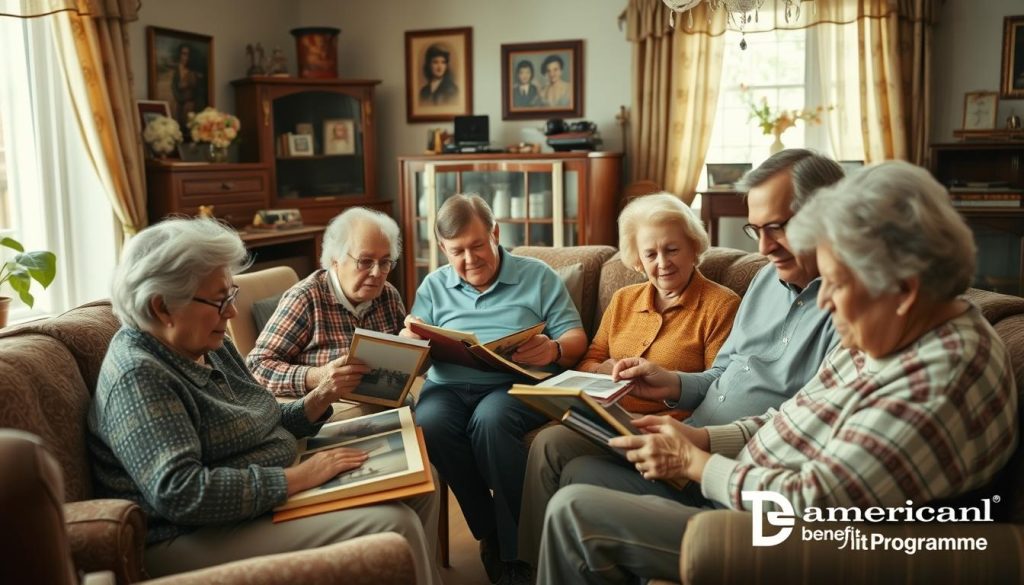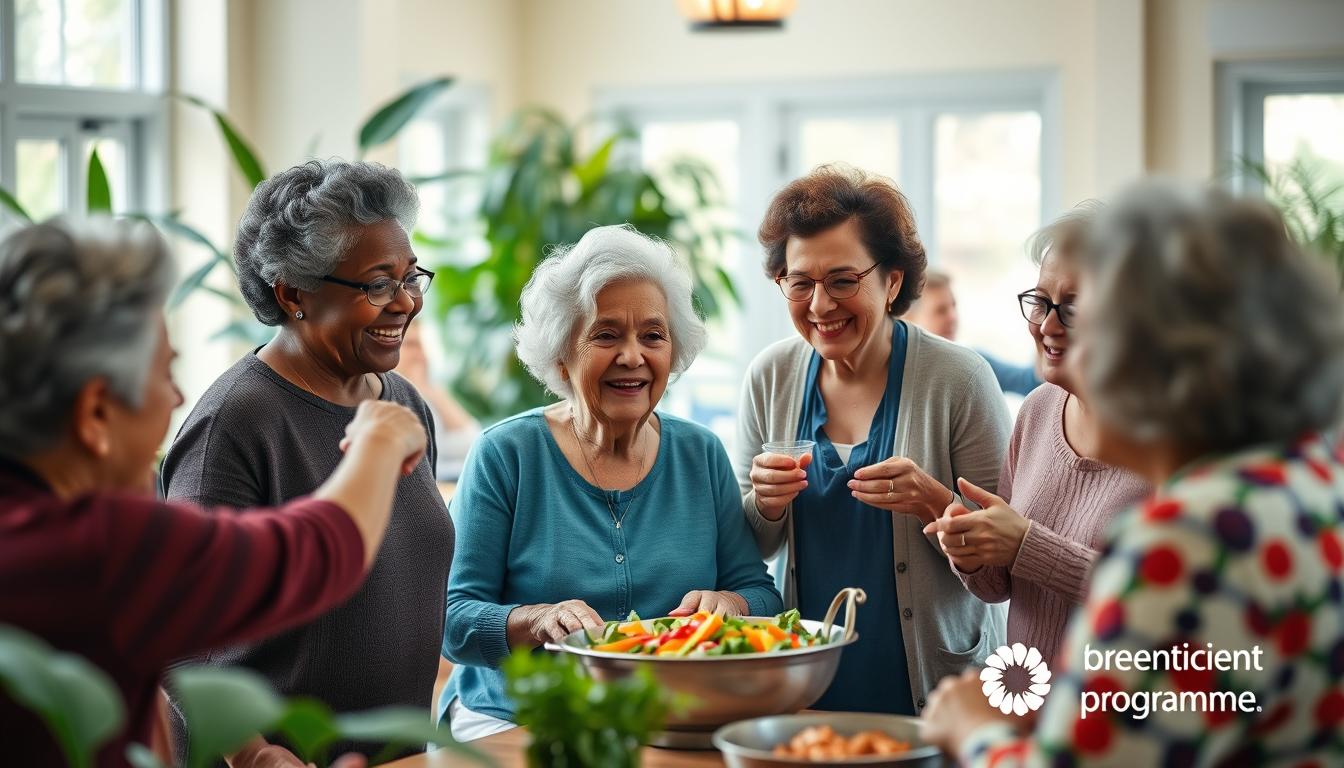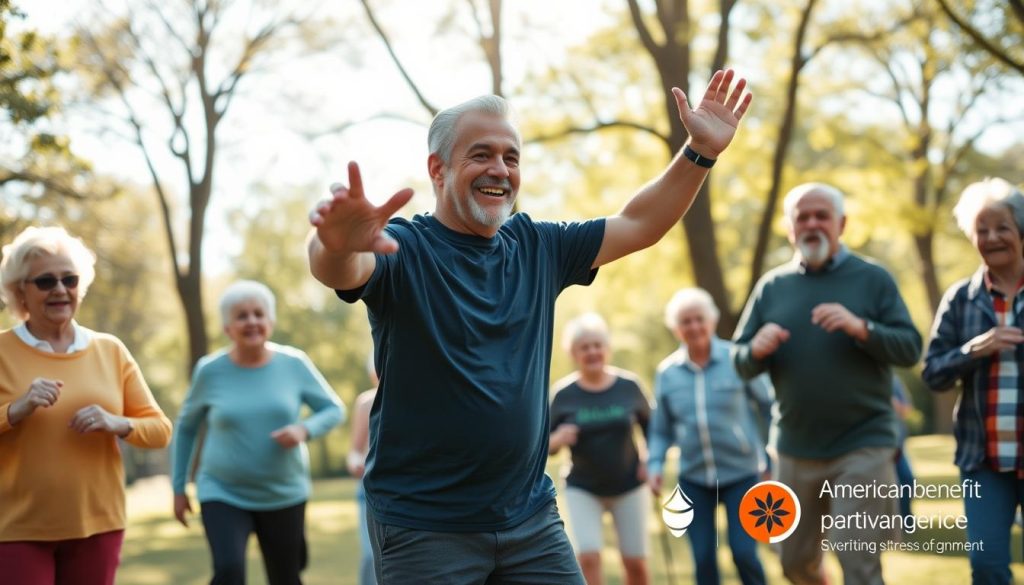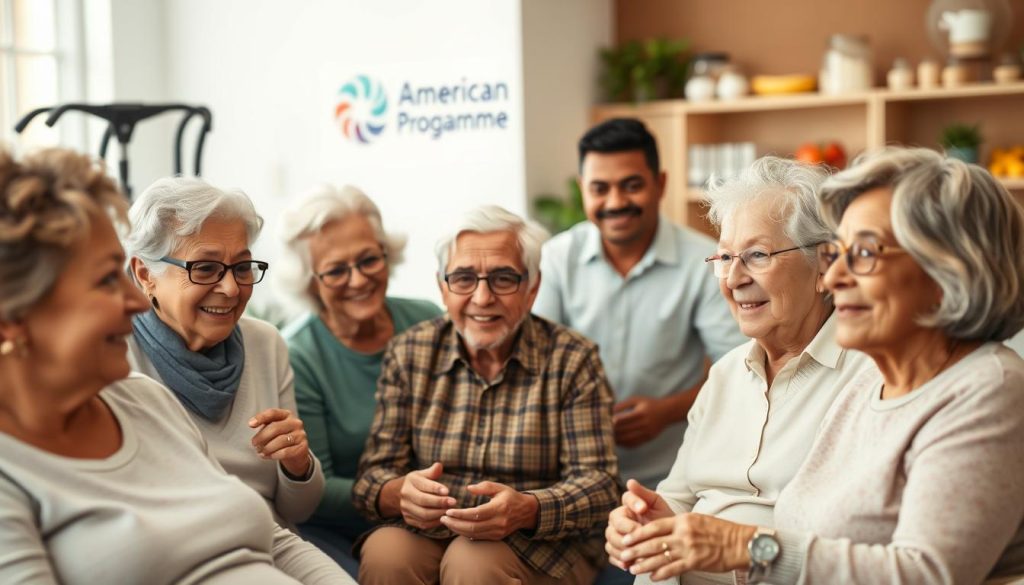What if making life better for seniors wasn’t just about their health? Imagine a place that makes them happy and connected. Every hour, three older people in the USA fall1. It shows we need a full plan to make their lives better. As people get older, making sure they’re happy in every way helps them live their best life. This includes being healthy, feeling good mentally, and having friends.
We need to look at senior living in a new way. This means caring about their happiness and making sure they’re involved, active, and have goals. We’re finding out the hard parts of getting older. But, we’re also seeing how we can really change their everyday life for the better.
Key Takeaways
- The quality of life for seniors can be significantly improved through a multi-dimensional approach.
- Engagement in social activities is vital for emotional resilience and mental health.
- Physical activity is essential in reducing fall risks and enhancing overall well-being.
- Nutrition plays a critical role in maintaining health and preventing chronic conditions.
- Community involvement fosters a sense of purpose and counters loneliness in the elderly.
The Importance of Quality of Life for Seniors
Quality of life is very important for seniors. It greatly affects their health and happiness. Many seniors at home deal with chronic diseases. So, it’s important to focus on keeping them healthy and happy2.
There are nine key areas that make up a senior’s quality of life. These include physical and emotional health, and their social life. Understanding these helps us improve life for older people2. Also, having friends and support makes seniors healthier and happier3.
Sometimes, people think aging is bad. This isn’t true. Many older people are happy and feel in control of their lives4. We must support positive experiences as they age.
Understanding Elderly Health Optimization
Keeping seniors healthy helps them live longer and better. It’s key to manage chronic illnesses and stay active. Also, preventing diseases before they start is crucial. Studies show being socially, cognitively, and physically active improves seniors’ health and happiness5. Better care for the elderly reduces the chance of getting weaker in the hospital. For example, 35% of people aged 70 get weaker after hospital visits. This number goes up to 65% for those 90 and older5. Staying healthy with vaccines and doctor visits helps seniors do well.
Many old patients find it harder to take care of themselves after leaving the hospital5. This makes it easier for them to get sick again or even pass away sooner5. By helping them manage their health, caregivers keep seniors living a good life. Looking after their mental health also helps them stay active and independent6.
By 2060, there will be 94.7 million older people in the U.S7.. Taking good care of them is more important than ever. This not only makes their lives better but also saves money on healthcare7.
Physical Activity: A Key Component of Well-being
Moving our bodies is key to staying healthy and happy, especially for older folks. Regular exercise means less illness and fewer falls. It’s a fact that many over 65 take a lot of medicines. This can lead to less moving around and health going downhill8. Experts say old people should move around for 150 minutes every week. Sadly, many don’t hit this goal9.
Being active is good for the body and the mind. Studies show it keeps the mind sharp and slows aging8. Doing balance exercises for more than three hours a week cuts the risk of falling by 21%9.
There are fun ways for older adults to stay active. Like walking, working out together, and easy sports. These activities keep them healthy and help make friends. They also keep the brain in top shape, making thinking clearer9.
But, staying active can be hard for seniors. They may be too busy or prefer sitting activities. That’s why it’s important to support them in finding ways to stay active. With the right help, they can keep moving and enjoy better health. Let’s make it easier for them to find places to exercise. This will help meet their needs as they age.
Nutrition and Its Role in Senior Wellness
Nutrition is key to better life quality for seniors. A good diet helps keep them healthy. It deals with sickness and boosts wellness. As the number of older people grows, so does the need for proper nutrition10. This is because more seniors might not eat well. About 50% of older folks living at home may face this issue11.
Many seniors find it hard to eat well due to body changes and less taste10. Feeling lonely or sad can also make eating properly hard. It’s worrying that 20-30% of older people might not feel like eating. This can make them weak10. Helping them eat right is essential for their health.
Not getting enough of certain nutrients can affect senior’s minds and health. Protein is very important for strong muscles and bones. Moving more and eating right helps with blood sugar and muscle building11.
Eating foods full of vitamins, minerals, and good fats is crucial. These foods should be a big part of their meals. Here’s a table with some great food choices for seniors:
| Food Group | Examples | Benefits |
|---|---|---|
| Fruits | Blueberries, oranges, bananas | High in vitamins and antioxidants |
| Vegetables | Spinach, broccoli, sweet potatoes | Rich in fiber and essential nutrients |
| Proteins | Chicken, lentils, tofu | Supports muscle strength and repair |
| Dairy | Yogurt, cheese, milk | Good source of calcium and probiotics |
| Grains | Oats, quinoa, brown rice | Provides complex carbohydrates and fiber |
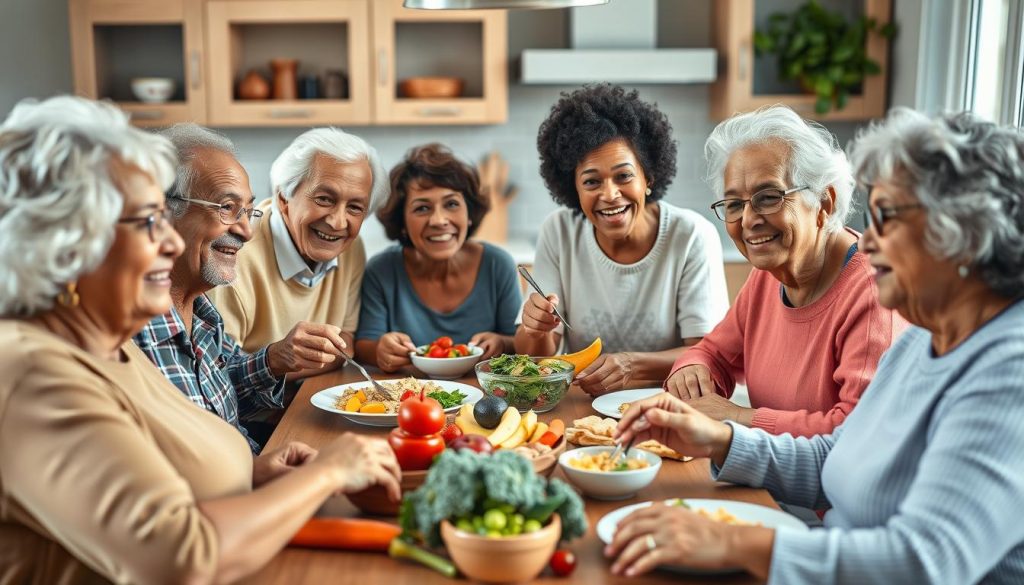
Planning meals for seniors can really help them stay healthy. Using lots of nutritious foods improves their health. This makes older adults stronger and improves their lives.
Elder Quality of Life Enhancements
To better the lives of seniors, there are many steps to take. Keeping a good food balance is key. Eating well helps avoid illnesses related to diet, making life better. Seniors often deal with less physical and mental power. They need a smart plan for food and care for ongoing illnesses.
Importance of Nutritional Balance
Eating right does wonders for health and living longer. Research shows a balanced diet boosts life quality, especially physically and socially. Mental health scores, though, might be lower12. With more old people expected by 2050, knowing what to eat is super important12. Active seniors with a good diet feel healthier overall12.
Interventions for Chronic Conditions
Older folks often have long-term health issues like diabetes and high blood pressure. Custom diets and regular check-ups can really help. These plans make caring for these conditions better. Water workouts are great for those hard to move, helping both mind and body12. Such activities keep seniors fit. They also make friends, improving their life quality12.
| Chronic Condition | Recommended Nutritional Strategies | Possible Interventions |
|---|---|---|
| Diabetes | Low glycemic index foods, fiber-rich meals | Regular monitoring of blood sugar levels |
| Hypertension | Low sodium, potassium-rich foods | Guided dietary plans, physical activity routines |
| Heart Disease | Healthy fats, whole grains | Cardiac rehabilitation programs |
Teaching seniors about food and letting them help plan meals can change their lives. Using smart steps for health issues matters a lot12.
Mental Health and Emotional Resilience
Taking care of mental health in older people is now more important than ever13.By 2050, one in six people will be over 65, showing we need to look after their minds. Getting older comes with its challenges, especially in staying emotionally strong.
Recognizing Signs of Depression
Depression shows up in many ways in older adults. They might feel very sad, lose interest in fun activities, or not want to socialize13.It’s sad that many end up in prisons instead of getting the help they need. Also, too many older people are drinking too much without us noticing13. Finding these signs early can help them get the right help quickly.
Encouraging Social Connections
Having friends and family around is key to feeling emotionally strong, especially for old people. Things like feeling good about oneself, having support, and staying hopeful make a big difference14. Making and keeping friends helps them feel less lonely and more happy. Doing things together with others is great for their mental and emotional health.
| Key Factors for Emotional Resilience | Descriptions |
|---|---|
| Self-Esteem | A strong sense of self-worth enhances coping mechanisms during stress. |
| Social Support | Strong connections with friends and family provide emotional backing. |
| Optimism | A positive outlook can significantly improve mental health outcomes. |
| Cognitive Flexibility | The ability to adapt thinking approaches aids in overcoming challenges. |
| Interventions | Training programs can enhance resilience, utilizing various therapeutic techniques and formats14. |
Senior Living Improvements Through Community Engagement
Community activities help seniors live better. They connect and support each other this way. It makes them happier and builds a friendlier place.
Group Activities and Their Benefits
Group activities are great for seniors. They make new friends and feel like they belong. Eversound made things better in some senior homes. It raised activity participation by 18-21%15.
This technology lets everyone join in, even if they can’t hear well. It makes life better for them15.
Volunteer Opportunities for Seniors
Volunteering makes seniors feel useful. It helps them emotionally and connects them with others. Watercrest Senior Living uses tools to find good programs for them16.
These programs make seniors happier. This makes more people want to live there. It improves how they feel about their life.
Technology and Aging: Bridging Communication Gaps
Technology changes how seniors live, making life better. It helps them talk more and get care without leaving home. This is good for them and helps those who care for them.
Telehealth Services for Remote Care
Telehealth for elderly helps seniors see doctors without travel. 75% of caregivers say smart tech is helpful. This shows how important tech is for elder care17. Personal alarms let seniors get help fast. This keeps them and their caregivers feeling safe17. Studies show chatting online can make over-70s sharper in their thinking18.
Utilizing Apps for Daily Living Assistance
Apps help seniors stay independent. They tackle common issues like confusion. 65% of caregivers want to use voice tech to help with talking17. Tech like GPS in alarms or tools for seeing better helps seniors get around safely17. Also, lots of seniors in Singapore use the internet. This shows they’re open to learning new tech18.

| Technology Type | Benefits | Applications |
|---|---|---|
| Telehealth | Convenience, Accessibility | Remote consultations, Routine check-ups |
| Personal Alarms | Emergency Assistance | Crisis management |
| Voice-Activated Devices | User-Friendly Interaction | Hands-free communication |
| Wearable Technology | Health Monitoring | Real-time health tracking |
| GPS Trackers | Safety and Security | Wandering prevention |
Tech helps seniors stay safe and live with more freedom. It makes them feel part of a community. This is great for older people everywhere.
Safety Initiatives: Preventing Falls
Falls are a big risk for older people, hurting their health and freedom. About 28% to 35% of those 65 and older fall each year. This number goes up to 32% to 42% for people over 70. It’s very important to stop falls before they happen, especially at home19. This part talks about special exercises and changes at home to keep seniors safe.
Exercise Programs Specifically for Fall Prevention
Many exercise programs help stop falls for older people. For example, A Matter of Balance is an eight-week course that lowers the chance of falling20. Bingocize® is another cool program. It mixes exercises with learning about health and meeting new friends, helping seniors stay fit and happy20.
- Enhance Fitness: A budget-friendly group class focusing on heart health, balance, strength, and stretching.
- FallScape: A tailored program using videos to help with balance.
- Healthy Steps for Older Adults: Aims at people 50 and up, reducing falls and boosting health.
- Otago Exercise Program: A set of exercises for strength and balance by a Physical Therapist, cutting falls by 35-40%20.
- Stay Active and Independent for Life (SAIL): Specially for those 65 and up, it’s proven to help prevent falls.
Home Modifications for Enhanced Safety
Making homes safer for the elderly can lower the chances of falls a lot. Studies show fixing homes up can prevent many falls19. Simple steps like installing grab bars, making the place brighter, and getting rid of things you can trip on make homes much safer.
| Modification | Benefit |
|---|---|
| Grab Bars | Provide support when getting in and out of the bathtub or shower. |
| Improved Lighting | Increases visibility, decreasing the chance of accidents in poorly lit areas. |
| Flooring Changes | Reinforcing or replacing slippery floors can prevent falls. |
| Handrails | Ensure safe navigation on stairs. |
| Clutter Removal | Reduces tripping hazards in high-traffic areas. |
Continuous Learning and Cognitive Engagement
Lifelong learning is key for keeping the brain healthy in older adults. It helps them keep their mind sharp, remember better, and may slow down brain aging. Being involved in different brain activities can boost brain function21. And can make it less likely to get dementia. It’s good for elders to try new things for their brain health.
Benefits of Lifelong Learning
Lifelong learning has many perks:
- Improves memory and thinking skills.
- Helps learn new abilities.
- Makes you more aware of how to keep your mind fit
- Gives a sense of achieving something.
- Makes it easier to meet people, which can help you live longer21.
Studies say grown-ups who learn and socialize more can keep their brains young21. And those who train their brain can keep their mind sharp as they age22.
Engaging Hobbies to Stimulate the Mind
Hobbies are great for waking up the brain and making life enjoyable. Such as:
- Quilting
- Digital photography
- Music and theater
- Creative writing and dance
These activities can make life better and help keep the mind healthy for elders22. They sharpen the mind and help make friends. This is important for feeling good overall.
Conclusion
Exploring how to make life better for older people shows we need a full plan. This plan should cover physical health, eating well, thinking well, and being part of the community. We found that how well older people think and feel matters a lot to their happy life. For example, thinking skills were linked with a happier life. Feeling low was strongly linked with a less happy life23. By helping with these issues, we can make seniors’ lives better.
Being active and part of the community is key to making these improvements. Feeling connected and joining in activities help older people feel stronger inside. Over 3,400 seniors showed the value of having good relationships and feeling emotionally supported. This proves staying healthy means both good physical and mental health2.
Soon, South Korea will have many older people. This makes it important to care for their different needs, including those in long-term care. By focusing on what improves life quality, we help not just individuals but our entire community. This creates a place where our older loved ones can be happy and healthy. It’s all about making their lives.
Source Links
- New Strategies to Improve the Quality of Life for Normal Aging versus Pathological Aging
- What does quality of life mean to older adults? A thematic synthesis
- Association of smart elderly care and quality of life among older adults: the mediating role of social support – BMC Geriatrics
- Autonomy, identity and health: defining quality of life in older age
- Understanding older patients’ self-management abilities: functional loss, self-management, and well-being
- Optimizing Older Adult Mental Health in Support of Healthy Ageing: A Pluralistic Framework to Inform Transformative Change across Community and Healthcare Domains
- Optimizing Health and Function as We Age: Roundtable Report
- Examining Physical Wellness as the Fundamental Element for Achieving Holistic Well-Being in Older Persons: Review of Literature and Practical Application in Daily Life
- The Importance of Physical Activity Exercise among Older People
- Nutritional Interventions for Elderly and Considerations for the Development of Geriatric Foods
- Nutrition and Healthy Aging: Prevention and Treatment of Gastrointestinal Diseases
- Disposition of improving quality of life in older adults: the case of Lithuania – Aging Clinical and Experimental Research
- Mental health care for older adults: recent advances and new directions in clinical practice and research
- Psychological interventions for resilience enhancement in adults
- Four Ways Integrated Design and Technology Improve Senior Living Communities | HKS Architects
- Technology and Seniors: Bridging the Gap in Home Care
- Using Technology to Bridge the Gap Between Generations – ConnectedLife
- Home and environmental hazards modification for fall prevention among the elderly
- Evidence-Based Falls Prevention Programs for Older Adults
- Activity Engagement and Cognitive Performance Amongst Older Adults
- Cognitive Health and Older Adults
- Factors Affecting Quality of Life Among the Elderly in Long-Term Care Hospitals
